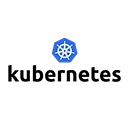etcd is a distributed, reliable key-value store that is used to store the configuration data and state of a Kubernetes cluster. It is a critical component of the Kubernetes architecture, providing a consistent and highly available data store for all cluster-related information.
Key Features of etcd
- Distributed: etcd is designed to run on a cluster of machines, ensuring high availability and fault tolerance. It can handle network partitions and node failures gracefully.
- Consistent: etcd uses the Raft consensus algorithm to ensure that data is consistently replicated across all nodes in the etcd cluster. This guarantees that all reads and writes are atomic and consistent.
- Key-Value Store: Data in etcd is stored as key-value pairs, making it easy to retrieve and update configuration settings and state information.
- Watch Mechanism: Clients can subscribe to changes in etcd data using a watch mechanism, allowing them to react to configuration changes in real-time.
Role of etcd in Kubernetes
In a Kubernetes cluster, etcd serves several important roles:
- Configuration Store: etcd stores all configuration data for the Kubernetes cluster, including information about nodes, pods, services, and other resources.
- Cluster State Management: etcd maintains the desired state of the cluster, allowing Kubernetes to track the current state and make adjustments as needed to achieve the desired state.
- Leader Election: etcd is used for leader election among the master nodes in a high-availability setup, ensuring that only one master node is active at a time to manage the cluster.
- Data Persistence: etcd provides a persistent store for Kubernetes data, ensuring that the state of the cluster is preserved even in the event of a failure.
Sample etcd Configuration
Below is a simple example of how to start an etcd instance using Docker. This command runs an etcd container with a specified data directory:
docker run -d \
--name etcd \
-p 2379:2379 \
-e ETCD_DATA_DIR=/etcd-data \
quay.io/coreos/etcd:v3.5.0 \
etcd --advertise-client-urls http://localhost:2379 \
--listen-client-urls http://0.0.0.0:2379
Explanation of the Command
- docker run -d: Runs the container in detached mode.
- --name etcd: Names the container "etcd".
- -p 2379:2379: Maps port 2379 on the host to port 2379 on the container, allowing access to the etcd API.
- -e ETCD_DATA_DIR=/etcd-data: Sets the environment variable to specify the data directory for etcd.
- quay.io/coreos/etcd:v3.5.0: Specifies the etcd image to use.
- etcd --advertise-client-urls: Configures the client URLs for etcd.
- --listen-client-urls: Configures the URLs that etcd listens on for client requests.
Conclusion
etcd is a fundamental component of Kubernetes, providing a reliable and consistent data store for managing the state and configuration of the cluster. Its distributed nature, strong consistency guarantees, and watch capabilities make it an essential part of the Kubernetes architecture.

